Welcome to our education resource hub.
Find out about the wide range of resources and materials we have available to support students, teachers, and schools in learning about the environment, sustainability, and regional initiatives.
Waikato Enviroschools Facebook group
Join the 'Waikato Enviroschools' group on Facebook for regular tips, ideas and inspiration from local schools taking environmental action.
Waste audit kits
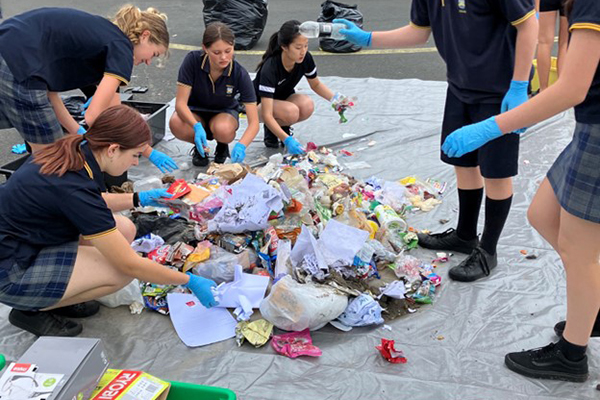
Minimising waste can be a great way for schools to take action for sustainability and develop a culture of environmental responsibility, and you can explore your school’s waste generation and management practices with our waste audit kits. Conducting a school waste audit is a fascinating way to reflect on environmental impact and identify informed, effective ‘next steps’ for your waste minimisation journey.
Our kits include instructions and all equipment needed to carry out an accurate assessment of waste streams in your school. Facilitation support may be possible, please include in your booking request if desired.
Audience: Schools and kura in the Waikato Region
Format: Resource kit
Stream study kits
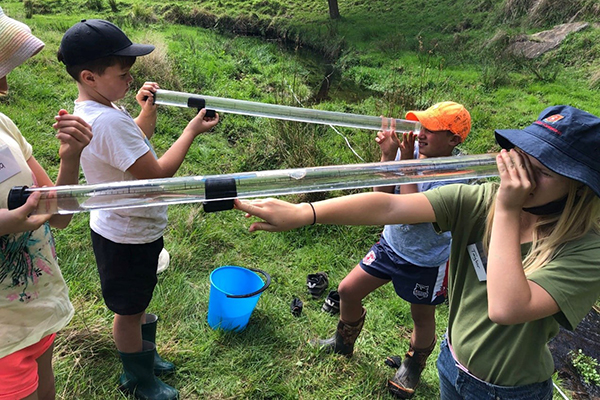
Explore freshwater ecosystems and your local waterways with our stream study kits. Designed for hands-on learning, these kits offer a structured approach to stream health monitoring and assessment. Students learn how to assess and interpret stream health based on measurements of physical and biological attributes of the sample waterway.
Our kits include instructions and all the equipment needed to carry out an accurate assessment of waste streams in your school. Facilitation support may be possible, please include in your booking request if desired.
The science learning hub has a wealth of information if you wish to explore further and includes the rivers and us learning unit.
Audience: Schools and kura in the Waikato Region
Format: Resource kit
Freshwater detectives kit
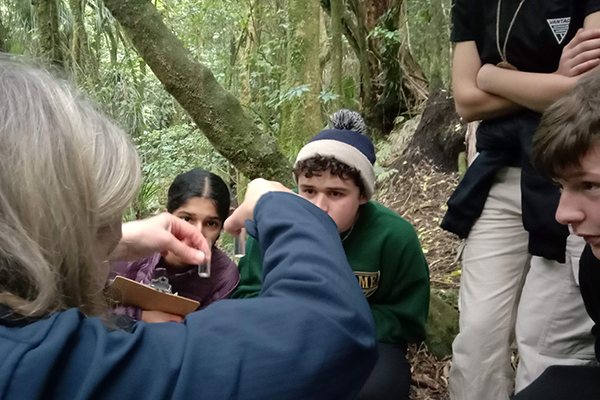
Explore freshwater science and assess local waterways by borrowing a Freshwater Detectives™ kit. Students learn how to conduct water quality testing and stream health assessments, and the kits include lesson plans, instructional videos, activities and equipment.
Designed by Watercare, Freshwater Detectives™ kits are available to borrow from Waikato Regional Council. Facilitation support may be possible - please include in your booking request if desired.
Audience: Schools and kura in the Waikato Region
Format: Resource kit
Climate change education support
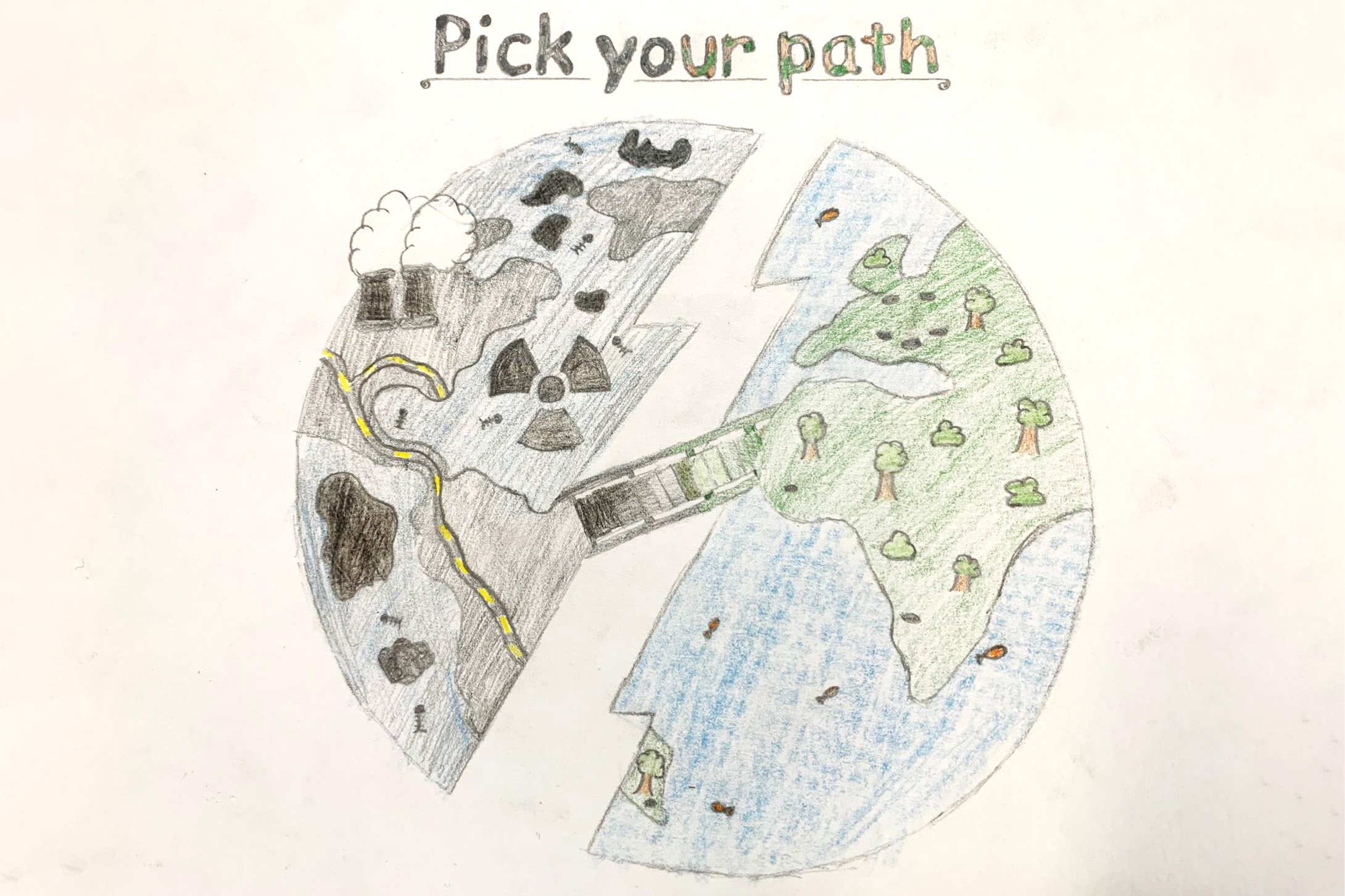
Climate change can be a tricky topic to teach. Storms, flooding and sea level rise can feel all too close to home for young people, who may be fearful about what their future holds.
Join our 2025 Climate Cohort, a new professional network for teachers, and together we can help rangatahi navigate this constantly challenging and often overwhelming kaupapa.
Membership is completely FREE, courtesy of the education team at Waikato Regional Council.
Member benefits
• Receive support from an environmental education facilitator.
• Access facilitated professional development.
• Make connections with climate change experts.
• Network with like-minded teachers.
We’re seeking expressions of interest from educators teaching students from Year 6 to Year 10 who would like support delivering the resource Climate Change: prepare today, live well tomorrow, hosted on the NZAEE website.
About the resource
Huringa Āhuarangi: whakareri mai kia haumaru āpōpō
Climate Change: prepare today, live well tomorrow
‘Whakareri mai kia haumaru āpōpō’ was developed by Aotearoa New Zealand educator Sian Carvell, in collaboration with both national and local science and education experts and organisations.
The resource will support you to deliver a science-based, integrated learning programme weaving in mātauranga Māori and Te Tai Unuora – a wellbeing guide. It is designed to support and empower all learners to have an individual and collective voice, to take action, and to play their part in a
larger, systematic response.
Audience: Teachers
Format: Resource kit
Kauri Pou Kaitiaki
Kauri Protection
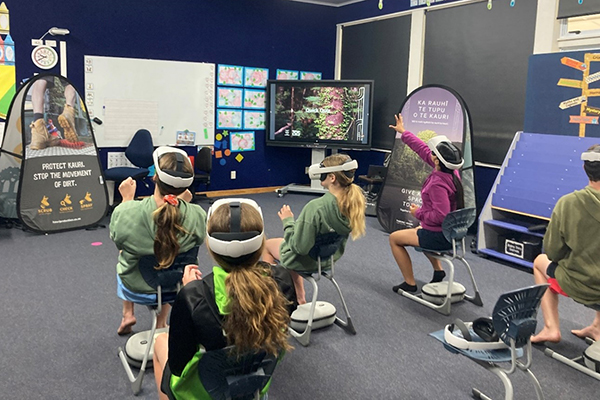
Immerse students in Kauri conservation with our in-school experience. This 1.5-hour lesson delivers interactive activities and a Virtual Reality experience where students explore Kauri significance, Kauri Dieback Disease, and ecosystem preservation. There are optional extension materials that empower students to take action to help protect Kauri.
Audience: Schools and kura in the Waikato Region
Format: Facilitated session
Freshwater Biosecurity
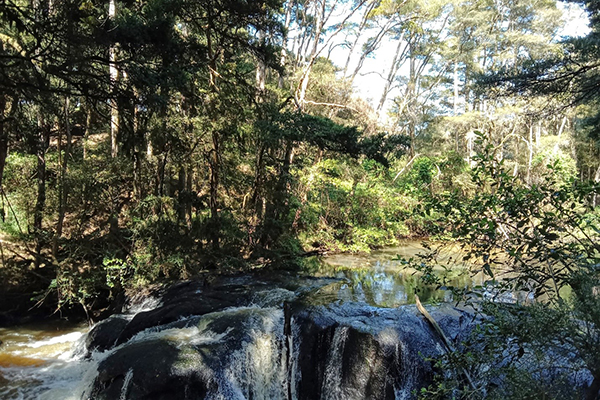
Learn about the importance of protecting New Zealand's freshwater ecosystems with our 'Freshwater Biosecurity Guardians' resource. This resource combines interactive activities, real-life case studies, and creative content to highlight the threats posed by invasive species like the Koi Carp. Students will gain valuable knowledge and practical skills to actively contribute to the health and sustainability of our precious freshwater environments.
Audience: senior primary - junior secondary
Format: Download teacher guide which contains links to interactive slideshows
Marine Biosecurity
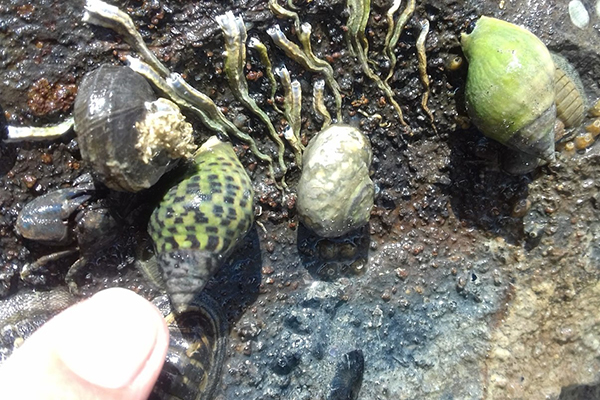
Imagine if we could go back in time and stop pests like rats, stoats or weeds like gorse from ever coming into New Zealand. When it comes to our coastlines, we still have a chance to do that! In this resource, students learn about the importance of protecting New Zealand’s marine ecosystems and coastlines, and take part in citizen science to help monitor and uphold our marine biosecurity.
Audience: senior primary - junior secondary
Format: Access teacher guide and slideshows for each session via link
Secondary Schools Employment Pathways (SSEP)
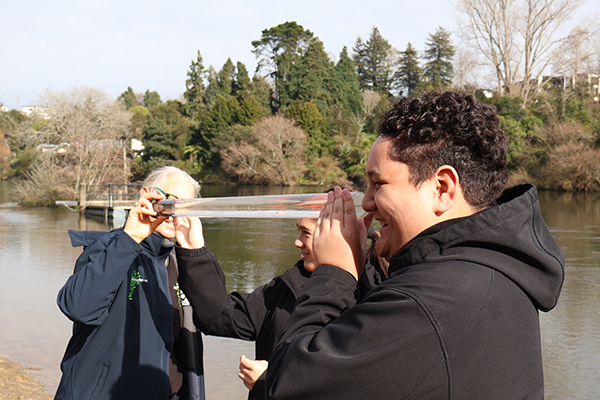
Waikato Regional Council is a host employer in the Smart Waikato’s SSEP programme. We are keen to connect with all Waikato secondary to support youth explore environmental careers. If interested, please contact Smart Waikato or Waikato Regional Council's Youth and Secondary Advisor (email Meshweyla.Macdonald@waikatoregion.govt.nz).
The format for SSEP is a three touch programme and is designed to support teachers with practical application of curriculum as well as expose students to career opportunities they probably didn’t know existed.
Visit 1 is a classroom visit where we introduce the programme, the concept of water quality testing, what happens and why, and also introduce the purpose and scope of the work done by Waikato Regional Council.
Visit 2 is at a waterway where the students conduct several practical tests that indicate the health of the waterway and prepare for visit 3.
Visit 3 is to the Regional Council where students are welcomed by whakatau and meet and hear from a number of Regional Council experts who share what they do for their jobs and their journey from student to current job. The students then have an opportunity to share their thoughts with Regional Council staff and decision makers about what they did, what they learned, any new things they discovered from their water testing experience, why clean waterways are important to them and what they think Council should be doing to make sure the waterways stay clean and healthy for their generation.
Audience: secondary school
Format: Three touch programme of in-person visits led by Waikato Regional Council
Mātauranga whakauka taiao – mā te katoa, mō āke tonu atu
Sustainability education – enough for all, forever
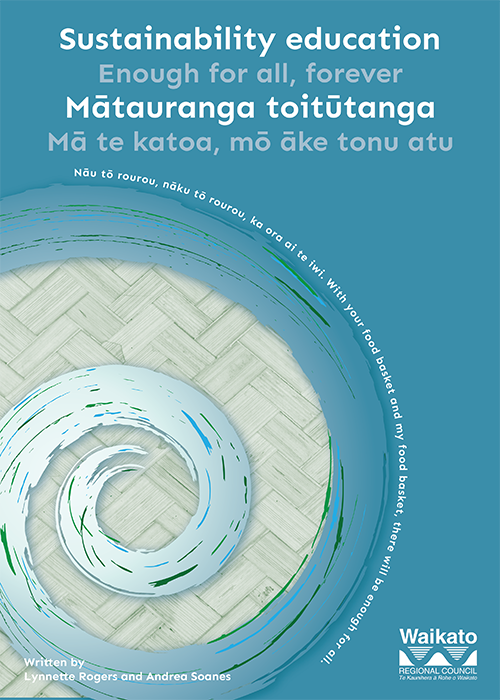
‘Sustainability education – enough for all, forever’ is a resource for New Zealand secondary schools, created to help teachers navigate the NCEA Education for Sustainability (EFS) Achievement Standards.
It’s intended to help build the confidence of new and experienced educators alike to successfully scaffold student learning in environmental education
Key features
- Build students’ Action Competence
- Explore culturally responsive pedagogies
- Innovate with interdisciplinary modules
What’s inside?
- Achievement Standard tips
- Case studies
- Thinking templates
Audience: Secondary school teachers and educators
Format: PDF resource and support webinar



